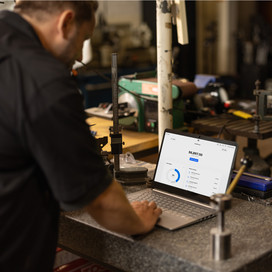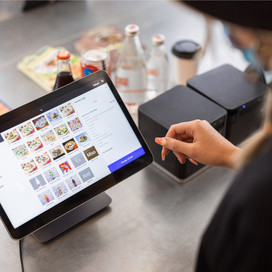Table of contents
Australia has a dynamic and growing number of businesses and initiatives established by Aboriginal and Torres Strait Islander peoples. Many of these businesses are rooted in traditional knowledge, art and cultural practices, and such entrepreneurship often prioritises community support, cultural preservation and sustainability. Indigenous businesses are also important employers and contributors to the economy. In fact, according to a recent report, Indigenous businesses contribute more than $16 billion to the Australian economy.
First Nations businesses have much to offer communities around the country. If you’re a First Nations business owner or are planning to become one, you may be eligible for additional government support. The Australian Government guide to starting an Indigenous business might be a useful first step – it offers tips on grants and programs to help you get started, and information on events and training to help you build your skills and grow your network. But there are other important factors you’ll need to consider.
Identify your business idea
There are many ways prospective business owners land on a business idea. Perhaps you’ve identified a gap in the market you think you can fill. Often, it’s down to an individual’s skills and interests. Shaun Edwards, the owner of House of Darwin, has childhood memories of collecting periwinkles with his family at the Northern Territory’s Mandorah Beach and trading them in Darwin. Now, he sells his clothing to the world – all for social benefit. Whatever business idea you choose, it’s essential that you understand your target audience and customer behaviour through market research. That research will help you make informed decisions and increase your chances of success.
Cultural considerations in business
Indigenous businesses might operate within cultural frameworks that include specific protocols, traditions and customs. It’s important for businesses to respect and uphold these protocols in their operations and interactions with customers and community members.
Many Indigenous business owners have a deep connection to their traditional lands and natural resources. Sustainable practices and environmental stewardship might therefore be integral to their business models. They might also prioritise community well-being and development as a means of building strong relationships within the community to gain trust and support.
At Indigiearth, owner Sharon Winsor has mastered the art of balancing tradition with modern business practices. She combined her culinary training and knowledge of Aboriginal food to build a renowned Australian native food supplier and restaurant. Integral to her business model is assisting Indigenous communities through employment, the establishment of Aboriginal business enterprises and educating the broader community about First Nations culture.
Create a business plan
A business plan is your way to think strategically about your idea and detail your business goals and target market. Your plan should also involve a competitive analysis of the market and how you plan to position yourself. If you’re selling products, you’ll need to decide whether you’ll open a brick-and-mortar store or set up your store online. Fortunately, Square Online can accept and manage both online and in-store orders, as well as from social media, future-proofing you if your plans change later. If you’re offering services, you might need to consider an online booking system like Square Appointments. You should consider all of these elements of your business and feed them into your plan.
You should also create a marketing strategy to outline how you plan to attract and retain customers, and an operational plan that considers factors like your organisational structure, your required resources and how these will support your business plan.
Finally, you should have a comprehensive financial plan, including projections to help you set realistic financial goals and attract investors or financial lenders should you need them.
Choose a business structure
Your business entity or structure will impact many elements of your business operations, and should be top of mind as you consider taxation and liability implications. You should first understand the common legal structures that apply to Australian businesses. A sole trader is an individual who operates the business, owns all the assets and is personally liable for debts, whereas a partnership involves two or more individuals or entities operating the business together, sharing profits, losses and liabilities. A company is owned by shareholders, which provides limited liability protection to its owners, while a trust is a legal entity where a trustee manages assets for the benefit of beneficiaries.
How you choose your business structure will come down to considerations around tax, personal liability and how much control you have over the organisation. You should seek legal and financial advice if you aren’t sure; you can also use this Australian Government tool for more information.
Indigenous corporations
If you’re an Aboriginal or Torres Strait Islander business owner, regardless of the type of business structure you choose, you can register as an Indigenous corporation through the Office of the Registrar of Indigenous Corporations. ORIC supports and regulates Indigenous corporations by advising on how to incorporate, providing governance training to directors and relevant staff, and ensuring legal compliance. Registration means you’ll be eligible for additional benefits, including the right to choose not to be personally liable for debts of the corporation. And it’s a good way of having important Aboriginal or Torres Strait Islander customs and traditions written into your corporation’s rule book. You’ll also have access to ORIC’s services and support regarding recruitment and legal advice.
Register your business
Your business name will be one of the most important elements of your brand. The name of Amanda Healy’s clothing label Kirrikin roughly translates to “Sunday best” in her Wonnarua language and so is a reflection of the business’ roots. Once you’ve decided on your business name, you’ll need to register it with the Australian Securities & Investments Commission (ASIC). Before you can operate, you’ll also need an Australian Business Number (ABN) and you may also need to register for Goods and Services Tax (GST) and other taxes. If you’re not sure what other registrations you need, you can use this tool for guidance.
Next, register your business on Supply Nation
The Federal Government’s Indigenous Procurement Policy (IPP) was established to stimulate Indigenous entrepreneurship and provide Indigenous businesses with greater economic opportunities by connecting them with the procurement teams of Australia’s largest organisations. The mandated first port of call for that is Supply Nation – a database of verified Indigenous businesses. Once you’ve secured your ABN and registered your business with ASIC, you can boost your visibility to the IPP process by registering with Supply Nation.
Secure financing
As part of your planning phase, you’ll need to determine your startup costs and create a budget. This should take into account obvious expenses like purchasing stock or produce, securing equipment or renting space, and the costs of marketing and paying staff. Your budget should also leave room for upfront expenses such as obtaining relevant permits and licences, paying any taxes or insurance policies, and any legal or financial advice you may need.
You may have personal savings you can use to help get your business up and running, but your budget should be as detailed as possible to help you secure loans, grants and funding from investors. If you’re relying on finance from these sources, they’ll need to see that you’ve given thought to all of your startup costs as a means of protecting their loan or investment.
Government support programs
New businesses have access to a range of grants and programs designed to offer financial support. The Federal Government lists more than 30 specifically for Indigenous businesses Australia-wide. For example, Aboriginal and Torres Strait Islander startups might be eligible for a $100,000 finance package to help get them off the ground. Use this grants and programs finder to search for those that might apply to you.
Marketing and branding strategies
In the early stages of establishing your business, you may wish to consider building a brand that reflects Indigenous values and identity. The owners of Sobah aim to raise positive awareness and promote First Nations culture, arts, language and history, an aim that is reflected in their branding and marketing.
Developing an effective marketing strategy will help you establish your initial market presence, and communicate to customers what makes your business unique and the values it stands for. You may choose to incorporate cultural symbols, languages or traditional knowledge into your marketing and branding strategies, differentiating your business and maintaining your cultural identity. This brand strategy 101 can help you learn how to differentiate your business.
Your brand and marketing strategies are essential components to the establishment of your business. And once you’re up and running, the way in which you market yourself will only grow in importance. With Square Marketing, you’ll be able to reach a wider audience and learn more about their behaviours and preferences, so you can use feedback and analytics to help shape your business decisions.
Networking and community engagement
Recent research indicates that a large percentage of Indigenous businesses are based in rural and remote areas. Importantly, these business owners are providing employment opportunities not only for themselves but also for their communities, while also remaining connected to Country. Support networks that encourage connectedness are vital, especially for those outside of major cities. In Victoria, for example, the Kinaway Chamber of Commerce provides business support and advice to Aboriginal and Torres Strait Islander businesses, and connects them with a network of other business owners as a means of support and sharing advice. State and territory governments and local councils are often great places to start as you look for ways to build your network.
Collaborative partnerships and community support initiatives are also key. The local community can be a new business’ greatest customer base. You might consider special offers for local customers, and once you’re established, consider a customer rewards program like Square Loyalty that integrates seamlessly with other software to help drive repeat business in your community and further afield.
Part of your community engagement efforts might be related to your purpose and values. For example, aside from its core business, communications agency Nungala Creative sells a range of products that reflect the company’s commitment to the visibility, strength and empowerment of First Nations people. Engaging in this way is an important tool for community connection and marketing yourself to customers with aligned values.
No matter what ambitions you hold for your business, Square lets you simply and effectively power your whole business from end to end, giving you time to focus on your customers, your staff and your growth.
All loans are issued by Square AU Pty. Ltd. (ABN 38 167 106 176). Valid Australian bank account is required. Actual fee depends upon payment card processing history, loan amount and other eligibility factors. A minimum payment of 1/18th of the initial loan balance is required every 60 days and full loan repayment is required within 18 months. Loan eligibility is not guaranteed. Eligibility criteria include consistent and continuous payment card processing through Square. All loans are subject to credit approval. Terms and conditions apply.
![]()












